|
My "thing" is adult playfulness, happiness and leisure skill development. But I also love language. Which is why I notice spelling and grammar mistakes. It's why I wrote Not to Nitpick, But Try Takes The Infinitive (Or a Gerund), NOT a Conjunction. It's why I wrote It's Not "Rediculous" -- It's RIDICULOUS. Here's Why. And it's why I'm writing today to share this important public service announcement: it's not "prejudice." It's prejudiced. Here's why: Prejudice can either be a noun or a verb. As a noun, it means a "preconceived opinion that is not based on reason or actual experience." It could also mean a "dislike, hostility, or unjust behavior deriving from unfounded opinions." As a verb, it means to "give rise to prejudice in (someone); make biased" -- or, of course, to "cause harm to (a state of affairs)." But all too often, in online comments, social media posts, and even petitions, you see people saying that something is prejudice. That isn't what you mean. I mean, unless you're trying to say that someone IS "preconceived notion," or someone IS "harm of injury resulting from some action or judgement." But that's almost certainly not what you mean. Like, you wouldn't call someone death. You'd call them deadly. Unless you're saying, "Samantha, this is Death, and this is Death's friend, Prejudice." Otherwise, you are trying to say that someone or something is prejudiced -- an adjective, or descriptive word that names an attribute and ascribes it to a noun. Prejudiced means "having or showing a dislike or distrust that is derived from prejudice; bigoted." Using prejudice in this case... would be kind of like saying an argument was point, instead of pointed. That a debate was heat, instead of heated. You may have made a point... but your argument was pointed. Similarly, a policy may have shown prejudice... but the policy was prejudiced. I can easily understand why someone would make this mistake. Say "prejudice" and "prejudiced" out loud. They sound pretty much exactly the same, right? Because most people don't make the linguistic effort to really enunciate that -d sound at the end of the word. And you're just saying/spelling what you've heard. Just like people hear RE-diculous, even though it's RI-diculous. Just like people hear "try 'n", because that's easier to say than "try TO." Using the correct word when you're making your argument will strengthen your argument. (And on that note, it's good to use your and you're correctly.) And before you get mad and call me arrogent (after all, as J.K. Rowling wrote in Harry Potter, "It's far easier to forgive someone for being wrong than for being right"), just remember one thing: It's not arrogent. It's arrogant.
2 Comments
NJ
9/18/2017 10:12:18 am
I hope everyone appreciated the "Death's friend Prejudice" gag as much as I did.
Reply
6/23/2022 11:11:19 pm
We are all prejudiced. We are all biased. We all have our own personal experiences and biases that we apply to the world around us. And while it's important to understand why we do this, it's also important to understand that it is not just limited to the extreme cases of racism or sexism. In fact, I would argue that most of us have some form of bias in our lives.
Reply
Leave a Reply. |
About the Author

Eva is a content specialist with a passion for play, travel... and a little bit of girl power. Read more >
Want to support The Happy Talent? CLICK HERE!
Or Find me on Patreon!
What's Popular on The Happy Talent:
Trending in Dating and Relationships:
What's Popular in Science: Playfulness and Leisure Skills:
Popular in Psychology and Social Skills:
Categories
All
|

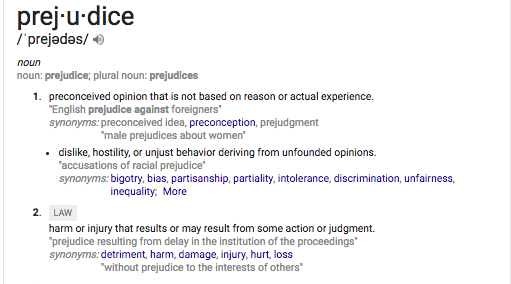
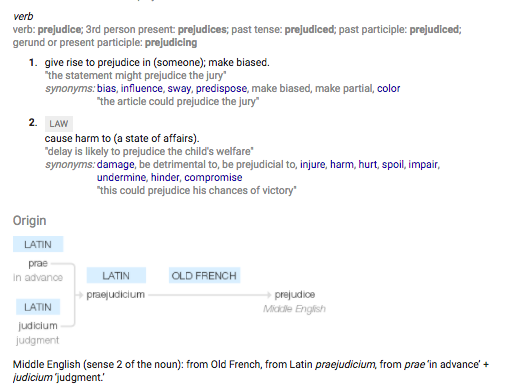
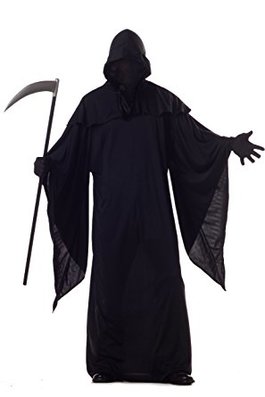
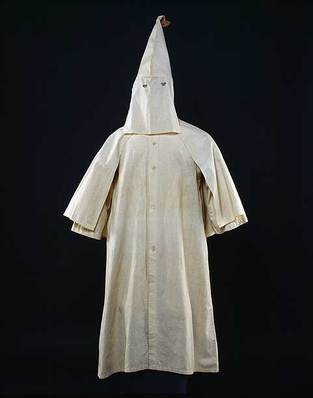
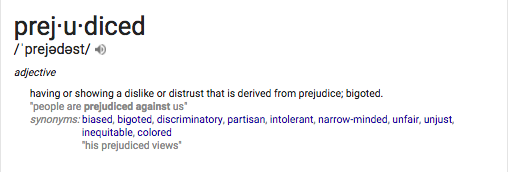

























 RSS Feed
RSS Feed